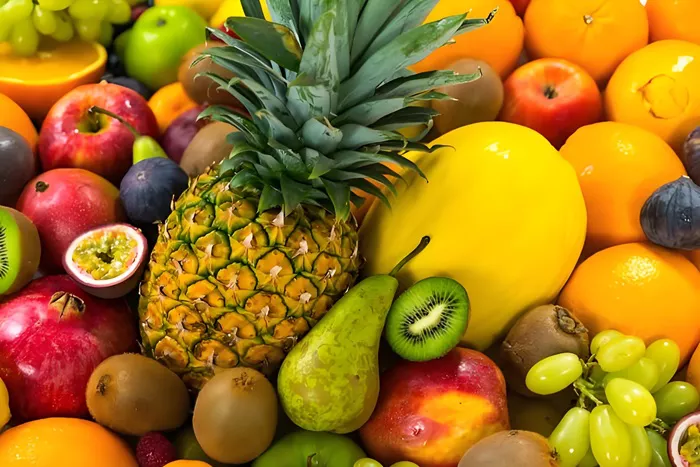Hayfever, also known as allergic rhinitis, is a common condition that affects millions of people worldwide. Characterized by symptoms such as sneezing, runny nose, itchy eyes, and congestion, hayfever can significantly impact quality of life, especially during peak pollen seasons. While antihistamines and other medications are commonly used to manage symptoms, many people seek natural remedies to complement their treatment. One such remedy that has gained attention is pineapple. But can pineapple really help your hayfever? This article explores the potential benefits of pineapple for hayfever sufferers, the science behind its effects, and how to incorporate it into your diet.
Understanding Hayfever
What Causes Hayfever?
Hayfever is an allergic reaction to airborne substances such as pollen, dust mites, or pet dander. When these allergens enter the body, the immune system mistakenly identifies them as harmful and releases histamines. Histamines trigger inflammation and the classic symptoms of hayfever, including sneezing, itching, and nasal congestion.
Common Treatments for Hayfever
Traditional treatments for hayfever include:
Antihistamines: These medications block the effects of histamines, reducing symptoms.
Nasal Corticosteroids: These sprays reduce inflammation in the nasal passages.
Decongestants: These help relieve nasal congestion but are typically used for short-term relief.
Immunotherapy: This involves gradually exposing the body to allergens to build tolerance.
While these treatments are effective, they can have side effects, leading many people to explore natural alternatives.
The Role of Pineapple in Managing Hayfever
Bromelain: The Active Compound in Pineapple
Pineapple contains an enzyme called bromelain, which has been studied for its anti-inflammatory and immune-modulating properties. Bromelain is found in the fruit and stem of the pineapple and is believed to play a key role in its potential benefits for hayfever.
Anti-Inflammatory Effects
One of the primary ways bromelain may help with hayfever is through its anti-inflammatory properties. Inflammation is a key component of allergic reactions, and reducing inflammation can alleviate symptoms such as nasal congestion and sinus pressure. Bromelain has been shown to reduce the production of pro-inflammatory cytokines, which are signaling molecules that promote inflammation.
Immune System Modulation
Bromelain may also help modulate the immune system, potentially reducing the overreaction to allergens that characterizes hayfever. By influencing the activity of immune cells, bromelain could help dampen the allergic response and lessen the severity of symptoms.
Mucolytic Properties
Bromelain has mucolytic properties, meaning it can help break down mucus. This can be particularly beneficial for hayfever sufferers who experience nasal congestion and sinus blockages. By thinning mucus, bromelain may help improve airflow and reduce discomfort.
Scientific Evidence Supporting Pineapple for Hayfever
Studies on Bromelain
Several studies have investigated the effects of bromelain on inflammatory conditions and allergic responses. For example:
A 2013 Study: Published in the journal “Evidence-Based Complementary and Alternative Medicine,” this study found that bromelain reduced inflammation and improved breathing in patients with sinusitis, a condition often exacerbated by hayfever.
A 2005 Study: Published in “Inflammation Research,” this study demonstrated that bromelain reduced allergic sensitization and airway inflammation in animal models, suggesting potential benefits for hayfever.
While these studies are promising, more research is needed to fully understand the effects of bromelain on hayfever in humans.
Anecdotal Evidence
Many hayfever sufferers report that consuming pineapple or taking bromelain supplements helps alleviate their symptoms. While anecdotal evidence is not as robust as scientific studies, it can provide valuable insights and encourage further research.
How to Incorporate Pineapple into Your Diet
Fresh Pineapple
Eating fresh pineapple is one of the best ways to consume bromelain. Here are some tips for incorporating it into your diet:
As a Snack: Enjoy fresh pineapple chunks as a healthy and refreshing snack.
In Smoothies: Blend pineapple with other fruits and vegetables for a nutrient-packed smoothie.
In Salads: Add pineapple to fruit or green salads for a sweet and tangy twist.
As a Topping: Use pineapple as a topping for yogurt, oatmeal, or desserts.
Pineapple Juice
Pineapple juice is another convenient way to consume bromelain. However, be mindful of the sugar content in store-bought juices. Opt for 100% pure pineapple juice or make your own at home.
Bromelain Supplements
For those who may not enjoy pineapple or want a more concentrated dose of bromelain, supplements are available. These can be found in health food stores or online. It’s important to consult your healthcare provider before starting any new supplement, especially if you have underlying health conditions or are taking other medications.
Precautions and Considerations
Allergic Reactions
While pineapple is generally safe for most people, some individuals may be allergic to it. Symptoms of a pineapple allergy can include itching, swelling, and difficulty breathing. If you experience any adverse reactions, discontinue use and seek medical advice.
Interactions with Medications
Bromelain can interact with certain medications, including blood thinners and antibiotics. If you are taking any medications, consult your healthcare provider before increasing your pineapple intake or taking bromelain supplements.
Moderation is Key
As with any food, moderation is important. Pineapple is high in natural sugars and acidity, which can cause digestive discomfort if consumed in large quantities. Aim to include pineapple as part of a balanced diet.
Conclusion
In conclusion, pineapple, particularly its active compound bromelain, shows promise as a natural remedy for hayfever. Its anti-inflammatory, immune-modulating, and mucolytic properties may help alleviate symptoms such as nasal congestion, sinus pressure, and inflammation. While scientific evidence is still emerging, anecdotal reports and preliminary studies suggest that pineapple could be a valuable addition to your hayfever management plan. By incorporating fresh pineapple, juice, or bromelain supplements into your diet, you may find relief from your symptoms and enjoy the added nutritional benefits of this tropical fruit. As always, consult your healthcare provider before making any significant changes to your diet or treatment regimen. With its refreshing taste and potential health benefits, pineapple might just become your new favorite ally in the fight against hayfever.
You Might Be Interested In:


